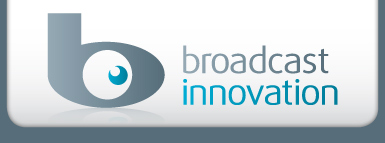Spamnesia or Skypochondria anyone? The future is fidgetal apparently…
Is language moving even more quickerer than wot technology is? Technology, and the hype that surrounds it, is changing the way we speak. But we don’t have to turn into drones, maybe it’s time for the techno-bullied to fight back. Chris Bowlby comments.
With the online Oxford English Dictionary recently re-launched and on the look-out for new language, maybe it’s time for a counter-revolution.
Can we create a new vocabulary that expresses not marketing mania, but the downside, the frustration, the terrible things we sometimes suspect modern technology is doing to us?
When your cursor makes you a curser, do the necessary words come to mind?
Let’s start to talk about the crazily fidgetal, the MisApps, mobile drones and Skypeochondria that afflict us all.
Puzzled? Definitions to follow. But first, here’s the problem.
In the pre-Christmas rush, the air is full of the sound of a thousand ad agencies launching their latest slogans. We need, we are told, to be more connected, upgraded, future-proofed than ever.
It is every advertiser’s dream to change our language, so that we talk Bluetooth or Mac or Google as readily as we talk about the weather or music or food.
And the more old technology is demonised, with phrases like “snail mail”, the better.
Are you buffering?
Broadcaster and language expert Susie Dent has watched how companies try to popularise “deliberately planted words”, or phrases that “catch the mood of the moment”.
“The marketing theory” she adds, is “that people like new words. New words are connected with new ideas, which in turn are the currency of conversation”.
So in the marketers’ dream world we Hoover up their slogans and spread them more widely, believing they do exactly what it says on the tin.
And technology does this very effectively. It’s even changed the way we talk about ourselves – as “hard-wired” in how we behave or “pre-programmed” to do something.
But not everyone is happy to go along with this linguistic change, this hyper-positive ad-speak about the wonderful world of super-connectivity.
Parents baffled by their children’s technological immersion fret about what it is doing to them. Young children have been known to say, when pausing for thought, that they are “buffering”.
The 30% of Britons not online are also baffled by what can seem a foreign language.
And even techno-enthusiasts know there are moments when we need very different words to describe how we feel when it all goes wrong.
So can we create an alternative language? What might catch on?
The US website Word Spy, which spots new words and phrases coming into use, has begun to identify some that meet the need.
There’s “laptop zombie” for those in cafes with wi-fi who start ignoring everything and everyone around them.
And back here in Britain there’s “social notworking” for those of you who really should not be reading this if your boss is nearby.
But otherwise, says Susie Dent, there’s “not that much” of an anti-language in Britain.
There “are not many anti-technological words that have become standard or even well-recognized. Most are pet nicknames that we keep close to home”.
High time that changed. Here, as a start, are a few of my suggestions, with definitions to try and get them into all those new dictionaries.
- Fidgetal – modern technology whose primary purpose is to give people something to do with their fingers (closely related to the decline of smoking)
- MisApp – something going terribly wrong due to over reliance on latest Phone gizmo
- Wikisqueak – sound emitted by diplomat who realises she’s sent confidential telegram without proper encryption
- Dreadsheet – spreadsheet containing very bad financial news
- Disgracebook – social networking site advertising user’s embarrassing past
- Mobile drone – lover of interminable tedious and public phone conversations
- Sin card – alternative device to fit in mobile for immoral communication
- Powerpointless – universal feeling in room at end of hi-tech executive presentation of negligible value
- Skypeochondria – queasy feeling brought on by obsessive fear of being offline
- Scroogele – search engine for people trying to find cheapest online gifts
Otherwise, in the fidgetal future, any memory of pre-tech language will have been wiped or corrupted.
A bit like that key document your wonderful new laptop or phone mangled the other day, leaving you… speechless.
Original Article


